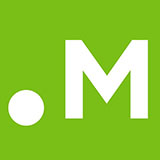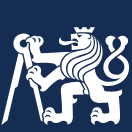Detailed introduction of the University of Pardubice:
Introduction
The University of Pardubice is a public comprehensive university located in Pardubice, Czech Republic. The school was originally famous for its chemical research, and now has developed into a higher education institution covering multiple disciplines.
Overview
Number of students: There are nearly 8,000 students in 2021, and data from 2025 shows that there are 5,818 students, including 494 international students.
Faculty: There are about 714 faculty and staff, including 622 administrative staff, 93% of domestic faculty and staff, and 7% of international faculty and staff.
History
The school was founded in 1950 and was originally named the Higher School of Chemistry. It was renamed the School of Chemical Technology in 1954. After 1990, the nature of the school changed, and several new colleges were added, no longer limited to chemistry-related majors. In 1994, it was officially renamed the University of Pardubice.
Founded in 1950.
School Strength
Teaching Quality: As a modern higher education institution, it offers more than 60 study programs and nearly 130 study majors. All courses are designed in accordance with the Bologna Declaration and modern trends in higher education. Most undergraduate courses have follow-up master's courses and provide full-time and part-time learning methods. Teaching is research-oriented, and courses are taught by professional teachers, focusing on cultivating students' practical ability and innovative thinking.
Scientific Research Achievements: The school's scientific research activities are rich and diverse, and the participation of many professional departments and related organizations, institutions and associations has made it enjoy a good reputation both domestically and internationally. The school's scientific research results have outstanding performance in many fields such as chemistry, transportation, and art restoration, and have made important contributions to the development of related industries.
International cooperation: It is a member of the European University Association, maintains cooperative relations with universities and research institutions in 40 countries, actively participates in international projects, carries out student and faculty exchange programs, and organizes various international conferences, seminars and other activities, providing a broad international exchange platform for students and faculty.
Institutional nature
Public university.
Educational philosophy
Emphasis on cultivating students' all-round development, focusing on combining high-quality teaching with rich scientific research and practical opportunities, so that students can acquire solid professional knowledge and skills in a good learning environment, while cultivating their innovation ability, teamwork spirit and international vision to adapt to the ever-changing social and economic needs, and lay a solid foundation for future careers and personal development.
Key laboratories and disciplines
Key laboratories: It has a solid-state chemistry laboratory and a new inorganic compound material research center jointly with the Czech Academy of Sciences.
Key disciplines: Chemistry ranks first in the Czech Republic in the latest Czech university major rankings. In addition, majors such as transportation and art restoration are also popular. The disciplines cover natural sciences, technical sciences, social sciences, health sciences and arts, including chemistry, chemical technology, biotechnology, biochemistry, materials science and engineering, informatics, electrical engineering, transportation and communication technology, economics, management, linguistics, history, philosophy, sociology, health research, art restoration, etc.
Department
The school has seven colleges, namely:
School of Chemical Technology: Founded in 1950, it is one of the oldest colleges in the school, with a deep foundation and outstanding strength in teaching and research in chemistry and related fields.
School of Economics and Management: Founded in 1991, it provides students with comprehensive economic and management knowledge education, and cultivates students' professional capabilities in economic analysis, business management, marketing, etc.
Yan Perna School of Transportation: Founded in 1992, it focuses on teaching and research in the fields of transportation engineering, transportation management, logistics, etc., and cultivates professional talents for the transportation industry.
School of Literature and Philosophy: Formerly known as the School of Humanities, it was established in 1992 and covers multiple disciplines including philosophy, literature, linguistics, history, sociology, etc., focusing on cultivating students' humanistic qualities and critical thinking skills.
School of Art: Established in 2005, it is committed to education and research in art restoration, conservation technology and related art fields, and cultivates students' professional skills in art conservation and restoration.
School of Health Studies: Established in 2002, it provides courses and research projects related to health sciences, including medicine, nursing, public health and other fields, and cultivates professional talents for the health industry.
School of Electronic Engineering and Information: Established in 2002, it focuses on teaching and research in the fields of electronic engineering, information technology, computer science, etc., and cultivates students' innovation and practical ability in the field of electronic information.
Rankings
QS World University Rankings: 1201-1400 in 2025; 1001-1200 in 2024; 1001-1200 in 2023; 1001-1200 in 2022; 801-1000 in 2021.
European University Rankings - Eastern Europe: 64th.
European University Rankings: 479th.
Expenses
For Czech-taught programs, eligible students can enjoy free education; the tuition fees for English-taught undergraduate programs range from about US$2,000 to US$3,000 per year, and the tuition fees for master's programs range from about US$2,500 to US$3,500 per year. The specific fees may vary depending on the program and course.
Campus
Campus environment: The campus is located near the city center with a population of about 100,000. The surrounding environment is pleasant and there are many sports and cultural venues, providing students with a rich choice of extracurricular life. Its modern facilities and good learning and living environment are comparable to those of top European universities.
Teaching facilities: The school is equipped with advanced teaching facilities, including laboratories, libraries, computer centers, multimedia classrooms, etc., which provide strong support for students' learning and research.
-

The University of J. E. Purkyne in Ústí nad Labem
-

Mendel University in Brno
-

Charles University
-

Czech University of Life Sciences in Prague
-

University of South Bohemia in Ceské Budejovice
-

Metropolitan University Prague
-

Technical University of Liberec
-

Palacky University, Olomouc
-

Brno University of Technology
-

Czech Technical University in Prague
-

Mesoamerican University
-

Istmo University
-

Mariano Galvez University of Guatemala
-

Regional University of Guatemala
-

Galileo University
-

Francisco Marroquín University
-

Rafael Landívar University
-

University of the Valley of Guatemala
-

University of San Carlos of Guatemala
-

Technological Institute of Tlaxcala Plateau
-

Golfo University
-

Technological University of South Sonora
-

Technological University of Huejotzingo
-

Tizimín Institute of Technology
-

Chilpancingo Institute of Technology

